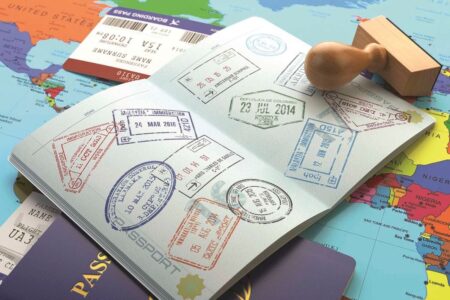The Treasury is targeting at least Sh55.8 billion in administrative fees and charges for services such as issuing national identity cards, passports, work permits and marriage certificates in the next financial year starting in July, up from Sh28.3 billion last year.
The extra billions are crucial in a year when the country will struggle to generate additional funds after President William Ruto bowed to public demands to scrap new tax measures contained in the controversial Finance Bill 2024, which would have generated Sh303 billion in new collections for the treasury.
The fees will be based on expected increased demand for public services such as passports and the higher fees implemented earlier this year.
These windfall gains are expected to boost operational funding for the relevant ministries and state departments that were looking to get rid of treasury support.
The Treasury estimates aid allocations at a total of Sh426 billion in the 2024/25 financial year or about 12.7 percent of total revenue, which is expected to stand at Sh3.343 trillion.
The new immigrant visas and other consular fees are expected to generate Sh21.1 billion in collections from the previous estimate of Sh5.6 billion for the year ending June 30 and will represent the highest collections under administrative fees.
Passport fees are expected to generate Sh5 billion in revenue in the financial year starting July 1, up from Sh3.2 billion previously.
Foreigner cards, which are mandatory for all foreign nationals residing in Kenya, will cost Sh5,000 as of March 1, 2024 from Sh1,000, while the penalty for not obtaining a new foreigner card has been revised from Sh1,000 to Sh10,000. .
Applications for Kenyan citizenship through marriage will now cost Sh100,000 compared to Sh30,000 previously, while East African citizens will receive Sh50,000 from Sh5,000.
Kenyan citizens and former residents who wish to obtain permanent residency pay an application processing fee of Sh50,000, Sh100,000 and Sh750,000 permanent residence certificate issuance fee respectively.
High immigration fees, while boosting government collections, threaten to weaken Kenya’s position as a preferred destination for expatriates and multinational companies.
Land and case arbitration fees are expected to rise as quickly as possible to Sh94.5 million, down from a conservative estimate of Sh291.585 million previously.
Revenue from ID card and marriage registration fees is expected to reach Sh3.4 billion and Sh253.2 million respectively, compared to Sh118.6 million and Sh168.8 million currently.
As of January this year, the cost of filing an ID application for the first time has risen to Sh1,000 from no cost previously, while a fee of Sh2,000 is now charged for duplicate or replacement applications from Sh100 previously.
Following the gazette changes in fees in November last year, the cost of obtaining a 34-page ordinary Class A passport has increased to Sh7,500 from Sh4,500 in 2023.
The Ministry of Interior indicated that the charges had been amended to suit the public’s views following the previous uproar that saw some previous notices cancelled.
The ministry also cited funding pressures in its move to raise fees and basic costs.
“The planned revised duties and taxes are based on Kenya’s need to become self-reliant in financing the national budget, and to rid the country of unsustainable debts that pose serious threats to our sovereignty and the dignity of future generations,” the ministry said.
In a move aimed at alleviating some public concerns, the ministry announced that it will bear the costs of the revised fees for obtaining national ID cards by waiving the fees for indigent Kenyans who prove unable to pay.
Earlier, the Ministry of Lands proposed increasing a number of service fees as part of a revenue expansion plan supported by the World Bank.
Among the services targeted for an increase of up to 100 times are the cost of formal land searches and the cost of registering documents, including compensation deeds, agreements and trust deeds.
The Ministry of Lands said the reviews are aimed at aligning some fees it considers unreasonably low or inconsistent with prevailing market prices.
Meanwhile, the ministry claimed that the amendments would help boost revenues beyond raising tax rates.
Other bodies such as the Kenya Wildlife Service and the National Museum appear to have followed suit, with the former raising entry fees to national parks and reserves.
